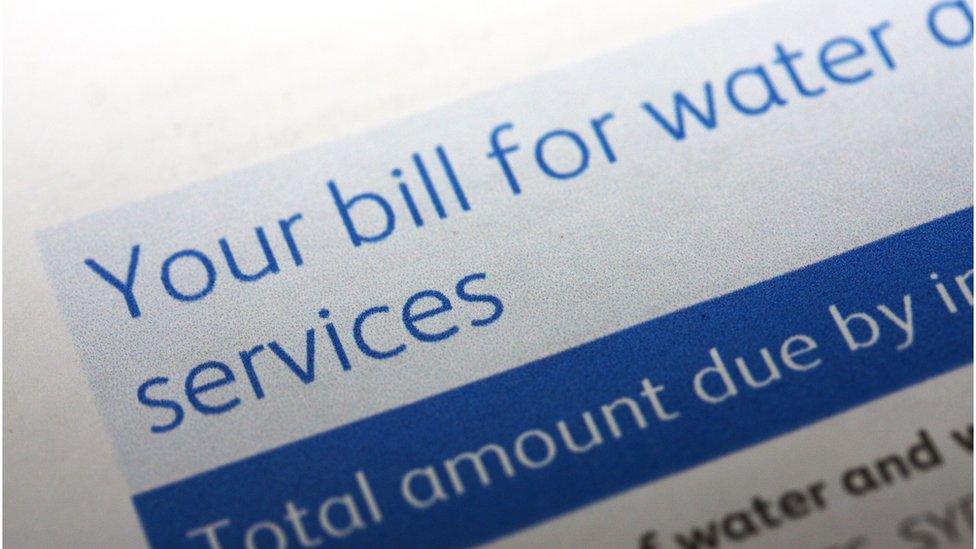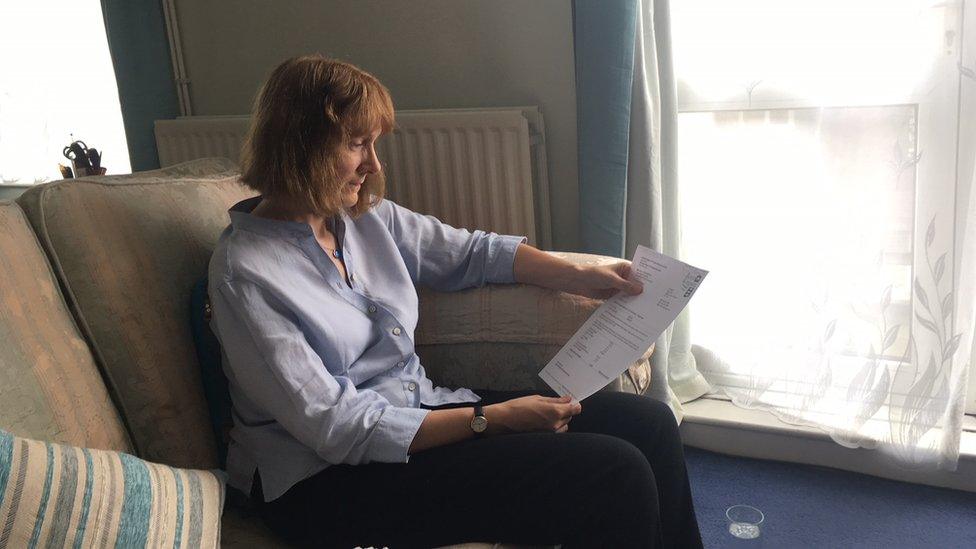Thousands of council tenants could get water payouts
- Published

Tenants could see money back from their landlords
Up to 460,000 council and housing association tenants could get a payout after a London borough was ruled to have overcharged its tenants for water.
The ruling against Southwark sets a legal precedent that means other councils and housing associations may now have to make a payout as well.
Some councils have already paid money back, while others will challenge the decision in court.
The Local Government Association says it thinks the ruling is wrong.
The association has also said it will assist councils in dealing with the decision.
Charge limit
Many council and housing association tenants in England and Wales are covered by arrangements where their landlord collects water payments from them with their rent, on behalf of the local water company.
The landlords generally receive a commission to provide this service from the company, keeping a share of the charges collected.
However, there has been a dispute as to whether, because of how they are structured, some of these water collection arrangements are in fact water reselling arrangements.
Where landlords resell water purchased from water companies to their tenants, regulator Ofwat stipulates they can only take a small additional fee.
According to the Water Order 2006, they must pass on any further money they make - from the discount they get on purchasing water in bulk from water companies - to their tenants in the form of reduced water charges.
Wider implications
In 2016, the High Court ruled that Southwark, external, which claimed to have a water collection arrangement where it acted as an agent for the water company in collecting charges, was in fact a water reseller, and had therefore overcharged its tenants.
This meant it had to make repayments of £21m to 41,000 of its council tenants, around £500 each on average.
Giles Peaker, housing lawyer at Anthony Gold, explained that the Southwark case could apply to all tenants where their landlord had the same agreement with Thames Water as Southwark did.
"The Thames Water agreement has already been decided on by the High Court. It will take a different decision in another case by the High Court or more likely the Court of Appeal to change this and so far no London council or housing association has challenged the Southwark case," he said.
"They are trying to avoid cases and waiting."
Mr Peaker also explained that the Southwark ruling could also affect tenants outside the Thames Water area, depending on how similar the terms of their agreements are to Southwark's.
"Whether it makes the council a reseller or just an agent may well have to be tested in court, but if the court finds that they are a reseller, they would have to refund most of the profits they made," he said.

Nannette said she was concerned she had heard nothing about this issue from her council
Information released by Thames Water shows that 255,000 council tenants and 50,000 housing association tenants in its area of operation are covered by these collection arrangements.
Nannette Herbert, a council tenant of Kingston Council in south-west London, who until recently paid water rates to the council with her rent, is one of those who could benefit.
"Any money is welcome, because obviously it's a struggle to pay for the basic bills like electricity, and so it would help to pay that," she explained.
She said she had heard nothing from her council about this issue, having heard about the case through local election campaigning material and reporting online.
Kingston Council said its position was that it had not acted as a water reseller.
Ben Hawkins from Water Claims UK, a company working on the water charges issue, said: "We have uncovered evidence of commissions being charged both within and outside the Thames Water area, and are preparing to issues proceedings in selected areas."
Budget contingencies
BBC Freedom of Information requests show that at least a further 155,000 council tenants elsewhere in England and Wales are covered by water collection arrangements, and the number of housing association tenants is unknown.
Some councils such as Wandsworth in London and Waverley in the South East have already paid back tenants. Others plan to challenge the ruling in court.
Stockport Council says that it will not have to make repayments, as another landlord in the same water area, Rochdale Boroughwide Housing, had already been ruled not to be a water reseller in court, external, with a different deal to that of Southwark.
Many councils have, however, made contingencies in their budgets should legal cases go against them. Hammersmith and Fulham Council has set aside £8.6m, while Pembrokeshire Council has established it faces a liability of £2.2m should it be ruled a water reseller.
Agreements reviewed
The LGA said it could not comment on any current legal action, but said it had seen legal advice which stated that the previous High Court decision does not bind other authorities and that it was arguably incorrectly decided. It said it was supporting a number of local authorities in exploring options available to them.
The National Housing Federation, which represents housing associations, said: "No housing association tenants have been charged more for water than they would have been if the water company were collecting the money directly.
"Since Southwark Council's agreement with Thames Water was found to be unlawful, housing associations throughout the country have moved quickly to review any similar agreements they may have."